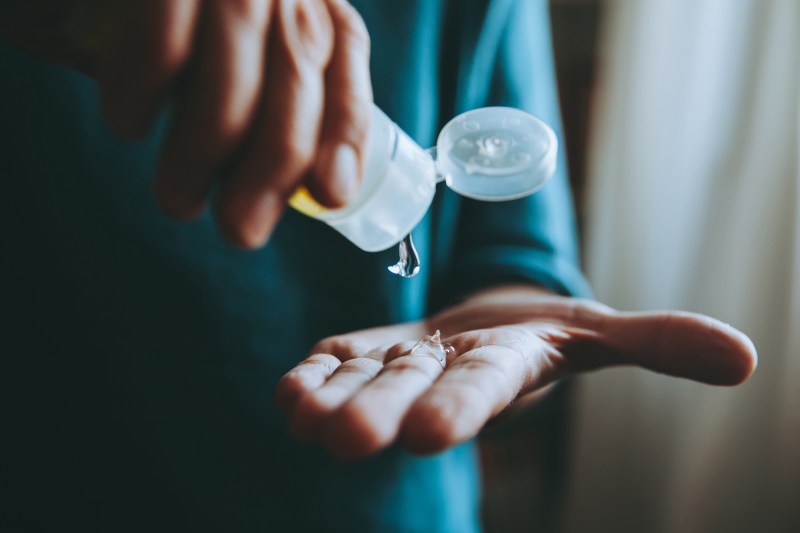In these unprecedented days of the ongoing public health crisis, many commodities we once took for granted are suddenly in short supply, including diapers, bleach, and toilet paper. Among the items you probably once paid narry a second thought to, but now you’d pay twice the usual price for, is hand sanitizer, which all but disappeared not only from store shelves but even from online retailers.
Now entering the third month of America’s bout of viral outbreak, hand sanitizer remains hard to find. But if you must leave your home from time to time, or if you are an essential worker who has to venture out daily, then you simply have to have this stuff at hand.
What to do if you can’t find hand sanitizer anywhere? Hey, this is America: You make it yourself.

In order to effectively kill off germs, hand sanitizer must be at least 60% alcohol — better yet, 70%, according to the CDC. Yes, you could just pour isopropyl alcohol (AKA rubbing alcohol) on your hands and rub them together as needed, but they’ll quickly leave your hands dry and cracking. And yes, you could dump Bacardi 151 or Everclear on your hands, as that would work, too. But don’t do that.
Instead, here is a step-by-step guide to making hand sanitizer at home using ingredients you may well already have (or can still find online). And a reminder: Hand sanitizers are a close second to washing your hands with soap and water as the most effective way to kill germs.
Ingredients
- Isopropyl alcohol (95% or higher alcohol, undiluted)
- Aloe vera gel (moisturizer)
- Clove oil or any other strongly scented essential oil (for scent so you can identify the substance; essential oils are useless in terms of health benefits)
How to Make DIY Hand Sanitizer
The process could not be much easier. All you need is a two-to-one ratio of alcohol to aloe vera (so two ounces isopropyl alcohol to one ounce aloe vera) mixed in a sterile vessel.
- Mix a two-to-one ratio of alcohol to aloe vera (so two of ounces isopropyl alcohol to one ounce of aloe vera) in a sterile vessel.
- Add a few drops of scented essential oil and mix again. ‘
- Pour the blend into a container from which you can pour or pump small amounts.
When you rub about a teaspoon’s worth on your hands for at least 30 seconds, you will reliably kill off viruses and bacteria and lift off bits of dirt and other unpleasantness, and the aloe vera should prevent your skin from becoming overly dry.
And if you need to make an extra-large batch of hand sanitizer, you can try this decidedly large-scale recipe from the World Health Organization. (You’re going to need a fair amount of odd science-lab equipment, FYI. Maybe stick to the small batch for now.)



